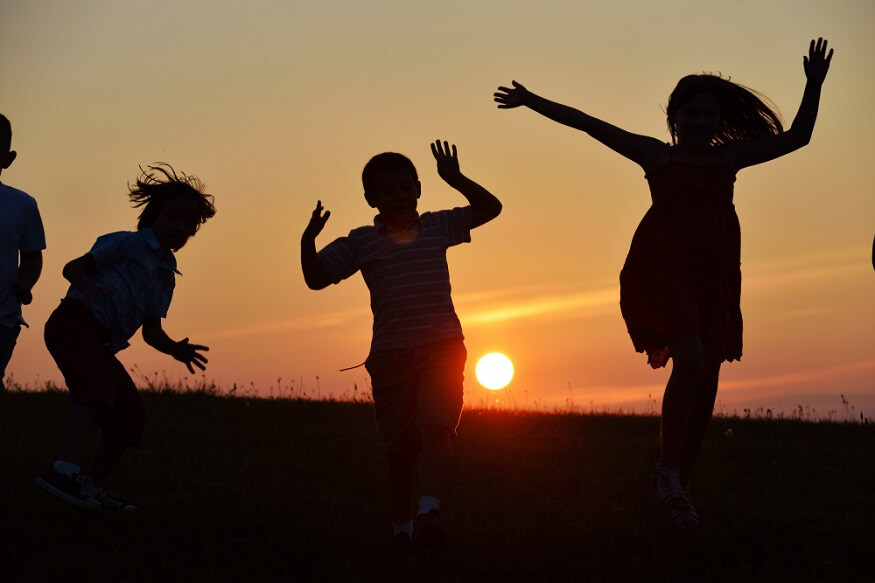For children, the terms “vacation” and “holiday” may seem the same, but they actually have distinct meanings. In this article, we will explore the difference between vacation and holiday for kids, shedding light on the details that set these two experiences apart. Understanding the difference between vacation and holiday is not only linguistically intriguing but also provides insight into the varied experiences that shape a child’s leisure time.
What is a Holiday?
A holiday, in the context of a child’s life, typically refers to a special day or period of celebration. It is a break from the usual routine and is often associated with festive occasions and cultural traditions. “Holiday” for children extends beyond the academic realm and encapsulates a broader concept of leisure time. Holidays are typically associated with specific occasions, celebrations, and festivals, allowing children to partake in festivities and create lasting memories. These occasions can range from religious festivals like Christmas and Easter to cultural celebrations like Diwali or Indian New Year. Here are three instances of what a holiday means for kids:
- Festive Celebrations: Holidays are marked by joyous celebrations and rituals that hold cultural and personal significance. For example, Christmas is a holiday when children eagerly await the arrival of Santa Claus, exchange gifts, and enjoy festive feasts. These moments create cherished memories and help children understand their cultural heritage.
- School Holidays: Another common meaning of the term “holiday” for kids is the breaks they get from school. These breaks, which include summer holidays and winter breaks, provide children with much-needed respite from their academic routine. It is a time for them to relax, engage in hobbies, and spend quality time with family and friends.
- National Holidays: Some holidays are also special days when the entire nation comes together to commemorate historical events or figures. For instance, the celebration of Independence Day in India includes fireworks and festive activities that unite communities and ignite a sense of patriotism in children.
What is a Vacation?
The term “vacation” refers to a time when children are released from their usual educational obligations, typically during school breaks. This term is commonly used to describe the time when students are not attending school due to term breaks, such as the summer or winter vacation. During vacations, children are free from the formalities of school but may not necessarily be engaged in specific festive or celebratory activities. Vacations are often associated with exploring new destinations, relaxation, and adventure. Here are three instances of what a vacation means for kids:
- Travel and Exploration: Vacations offer children the opportunity to explore new places, whether it is a beach resort or an exotic city. These trips expose them to different cultures, cuisines, and landscapes, broadening their horizons and instilling a sense of curiosity about the world.
- Family Time: A vacation is a special time for families to bond and create lasting memories. It allows parents and children to spend quality time together away from the distractions of daily life. Whether it is building sandcastles on the beach or visiting historical landmarks, vacations strengthen family connections.
- Leisure and Relaxation: Unlike the hustle and bustle of daily life, vacations are all about relaxation and rejuvenation. Kids get a break from school, enabling them to unwind and recharge.
Also Read: Creative Outdoor Scavenger Hunt Ideas for Kids
Difference in Activities Between Vacation and Holiday
Vacations and holidays offer children a plethora of activities to engage in, providing opportunities for relaxation, exploration, and creating lasting memories. The types of activities during vacations and holidays can vary, catering to individual interests, cultural traditions, and the nature of the break. Here’s a breakdown of the various activities that children might enjoy during these special times:
Vacation Activities
Unstructured Play:
- Taking advantage of the free time, children often indulge in unstructured play, allowing their imaginations to run wild. This can include outdoor games, building forts, or creating imaginative scenarios with toys.
Hobbies and Interests:
- Vacations provide an ideal opportunity for children to delve into their hobbies and interests. Whether it’s reading, drawing, painting, playing a musical instrument, or pursuing a sport, children can dedicate more time to activities they are passionate about.
Nature Exploration:
- Visits to parks, nature reserves, and outdoor spaces become common during vacations. Children can explore nature, go on hikes, observe wildlife, or simply enjoy the tranquillity of natural surroundings.
Educational Trips:
- Some families choose to incorporate educational elements into vacations by visiting museums, science centres, historical sites, or other educational attractions. This allows children to learn in a more informal and experiential setting.
Family Time:
- Vacations often focus on quality family time. Whether it’s a family trip to a new destination or simple activities at home, spending time together strengthens familial bonds.
Rest and Relaxation:
- A crucial aspect of vacations is providing children with ample time to rest and recharge. This can involve leisurely mornings, afternoon naps, and an overall slower pace compared to the school routine.
Holiday Activities:
Festive Decorations:
- Holidays are often accompanied by the joy of decorating homes. Children can actively participate in putting up Christmas trees, creating homemade decorations, or lighting candles for celebrations like Diwali.
Cultural and Religious Activities:
- Holidays provide an opportunity for children to engage in cultural and religious activities. This can include attending church services, participating in traditional rituals, or creating crafts related to the holiday’s cultural significance.
Gift Giving:
- Many holidays involve the tradition of gift-giving. Children eagerly anticipate receiving and giving gifts, which adds an element of excitement and generosity to the festive season.
Special Meals and Treats:
- Holidays often come with special culinary traditions. Children might participate in baking cookies for Christmas, making sweets for Diwali, or preparing traditional dishes associated with specific celebrations.
Community Events:
- Holidays frequently bring communities together through events such as parades, festivals, or fireworks displays. Children can actively participate in or attend these events, fostering a sense of community spirit.
Holiday-themed Crafts and Activities:
- Children can engage in crafting activities that are themed around specific holidays. This can include making Easter eggs, carving pumpkins for Halloween, or crafting handmade cards for festive occasions.
Games and Entertainment
- Special games and entertainment are often associated with holidays. Whether it’s playing Christmas-themed board games, participating in Halloween costume contests, or enjoying traditional games during cultural festivals, holidays offer a unique set of recreational activities.
Also Read: 10 Safety Tips for Taking Your Kids on Vacation
For more such articles, refer to EuroSchool blogs.











